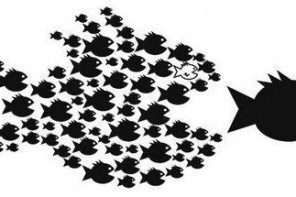The civil society in Bangladesh plays a significant role in articulating people’s interests in special areas to the government. In recent times, the civil society has built up consciousness among the people on major national issues such as corruption, climate degradation, and land grabbing by influential people in the society that have left Bangladesh’s rivers, canals, and wetlands at their mercy.
The civil society in Bangladesh has also made glorious contributions to the country’s emergence as an independent state. The Language Movement was initiated and led by the students and the intelligentsia of the country before the politicians took up the cause and used it to liberate the country. After liberation, the civil society has been active in nurturing the emergence of democracy in the country, particularly during its long tryst with military dictatorships. Even under the elected governments, the civil society played a crucial role in keeping those who are conscious of their responsibilities in power and assisting them in carrying out these responsibilities. These facts notwithstanding, there are also concerns about some of the roles of the civil society in Bangladesh. These concerns arise from the nature of Bangladesh’s turbulent politics and the fact that the activities of the civil society often extend beyond the country due to globalization and other factors. These factors make it imperative that the civil society must fully understand its role so that it complements the efforts of the government instead of creating problems.
The recent fiasco that occurred over the exhibition at the Drik Gallery is a case in point. A group called Students for a Free Tibet along with Drik gallery organized a photo exhibition “Into Exile: Tibet 1949-2009”. The exhibition according to the organizers was on “the Tibetan people, their sufferings caused by the Chinese government.” According to what appeared in the press, the Chinese Embassy contacted the Drik gallery and requested them to stop the exhibition. There were also calls to the Gallery from the government in support of the request of the Chinese Embassy. The Gallery, nevertheless, decided to go ahead with the exhibition. However, before it could be opened the police intervened and closed it.
A spokesman of Drik gallery was furious and said “the sudden intervention of the police is surprising while foreign country’s dictation as to what should be on display is humiliating”. Former TI, Bangladesh Chairman Dr. Muzzaffar Ahmed who is a leading member of the civil society said to an impromptu gathering outside the Drik Gallery that “we have the right to know of the neighbouring countries. I could not find any reason for stopping this freedom.” Both the gentlemen, while being right in expressing their emotions, however, showed their lack of sensitivity and knowledge about diplomatic practices and nuances. They have also shown lesser knowledge of Bangladesh’s international obligations and duties. As for diplomatic norms, what the Chinese Embassy did by asking the Government to stop the exhibition is part of the Embassy’s responsibility because the exhibition’s objective was to tarnish the image of China and the Embassy’s duty is to protect it. If a similar situation occurs abroad where Bangladesh was at the receiving end, its Embassy would be required to do exactly what the Chinese Embassy did. The failure to stop such an exhibition designed to tarnish Bangladesh’s image would land the Embassy in all sorts of trouble, even the recall of the Ambassador.
With China Bangladesh has strategic relations that are extremely important in the context of its foreign policy. It is committed not to interfere in China’s internal affairs. Going ahead with the exhibition would have been both an unfriendly act and interference in China’s internal affairs. As for the Professor’s freedom to know what is happening in the neighbouring countries, he is perhaps unaware that the foreign policy stakes are too high and it would have been incomprehensible and foolhardy if the government had not acted the way it did after the Chinese protest. Exposing China’s role in Tibet would hardly have been worth the damages that holding such an exhibition would have caused to Bangladesh-China relations.
There is also a point to be made about the sponsors of the exhibition. A visit to the website of the Students for a Free Tibet will show the visitor that there are eight countries where SFT has a national network. There is one in India that is understandable. Bangladesh is the only other developing country where SFT has a national network. The interest of the Bangladesh network to hold an exhibition that they certainly knew would embarrass China is food for thought. The Foreign Ministry would need to focus on this point because it knows better than anyone the value of China’s friendship that has been built over the years, a friendship that is not particularly warm at the moment.
During the last two elected governments, particularly during the last BNP government, an organization representing the civil society, driven by their zeal to bring transparency into the actions of the government, highlighted the extent of corruption in the government body. It was to a large extent due to their efforts that Bangladesh was placed on top of a list of corrupt countries for four years in a row. It is very true that the efforts of this civil society group brought into public consciousness that corruption is spreading into the body politic like cancer. However, lacking the means of coercion, their efforts merely earned Bangladesh the dubious title of being the most corrupt nation on earth while in no way assisting reduction of corruption itself. It gave Bangladesh a negative image that it did not need.
For a country like Bangladesh that depends on the external environment for its efforts to develop, it is essential that the civil society be aware of its limits so that it does not put the country’s foreign policy goals in jeopardy. The government may not have the necessary legal leverage to stop the civil society from exposing corruption in the government to a foreign organization, but the civil society should consider the pros and cons of such exposure. It should realize that such exposure has virtually no impact on reducing corruption that is largely related to the level of social-economic development in the country. The civil society must realize that the bad image that its activities give Bangladesh in turn has direct adverse impact on enhancing trade and attracting foreign direct investment that are priority foreign policy goals of the country. The civil society should work with the government’s watchdogs like the Anti Corruption Commission, the parliament, and the media for tackling corruption instead of embarrassing the government and creating obstacles to its foreign policy goals.
No government anywhere allows the civil society the freedom to exhibit what it wants, particularly where materials exhibited embarrass a friendly country. In Bangladesh, the regulations require an organization interested to hold such an event to get prior permission of the Ministry of Home Affairs and the Ministry of Foreign Affairs. Like many regulations that have gone by the wayside due to lack of use, this one also seems to have become dormant. The fiasco at Drik Gallery should wake the Foreign and the Home Ministry from their slumber to activate this regulation urgently.
The writer is a former Ambassador to Japan and a Director at the Centre for Foreign Affairs.







